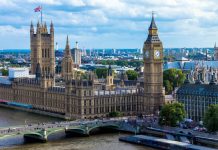Complexities between tribal casinos and sports betting operators, over the potential legalisation of sports betting in California are creating a debate that’s being replicated throughout the States, as American Indian tribes in the region aim to reassert the exclusivity of their offering.
In comparison to other states, California is moving at a snail’s pace when it comes to evolving gambling legislation, with it touting a November 2020 ballot as the first opportunity for voters to have their say on whether gambling should be legalised in the region.
Much of the reason for the slow progress when it comes to regulating sports betting in California, is because of the vocal of the trepidation of the tribes in the state, an input that’s of increasing significance, given that tribal gaming rakes in $8bn a year.
When asked to detail some of the complexities of the Californian market, Paul Leyland of Regulus Partners outlined the impact that tribes are having on the decision: “California’s legalised gambling is largely restricted to Indian tribal casinos (big business: c. $7-8bn pa) and racetracks (which have online already). Neither of these is likely to be a comfortable advocate of online sports betting, seeing it as more of a threat than an opportunity. Therefore the key vested interests are much more likely to be brakes than catalysts and in US politics this is key.”
Emphasising the importance of finding harmony between tribes and sports betting operators, he added: “In a ‘small change’ environment it is vital. The tribes contribute over $400m in taxes and generate a wage bill of $3.3bn – these are strong political levers that combined will dwarf anything sportsbetting can offer (especially employment), then there is the moral argument the tribes can deploy. For this to stop being a block we need ‘big change’ – structural landbased decline, consumer pressure etc and while this will build it is something of a glacial catalyst. Again, this points to the US’s biggest state by far being a late adopter rather than an early mover.”
When the US was on the brink of repealing PASPA, tribal casinos appeared to express an acceptance for allowing sports betting to enrich their portfolio, when NIGA chairman Ernie Stevens Jr old the Arizona Capitol Times: “I don’t believe this is going to take the place of our slot machines, but it’s another amenity we can enjoy and people can have fun with, and we want to be able to move forward with the overall industry.”
With almost 240 tribes operating casinos in more over half of the American States, bringing in a whopping $31bn a year in gross revenue, it’s hardly surprising that they’re reluctant to share the sports betting limelight with overseas operators.
However, a conflict of interest with tribes may not be the sole obstacle standing in the way of California embracing sports betting, Leyland continued by emphasising: “California is a massive consumer market – the biggest in the US by far, and also has significant ‘natural assets’ to pull in tourists. The case for small states to introduce specific legislation which encourages and taxes tourists is much more compelling than for large ones – the drivers for Nevada, Delaware and even New Jersey simply aren’t there. Without these drivers, the case for legalised sportsbetting is likely to be put in the ‘too small (relative to the state economy) / too difficult’ box for some time.”













